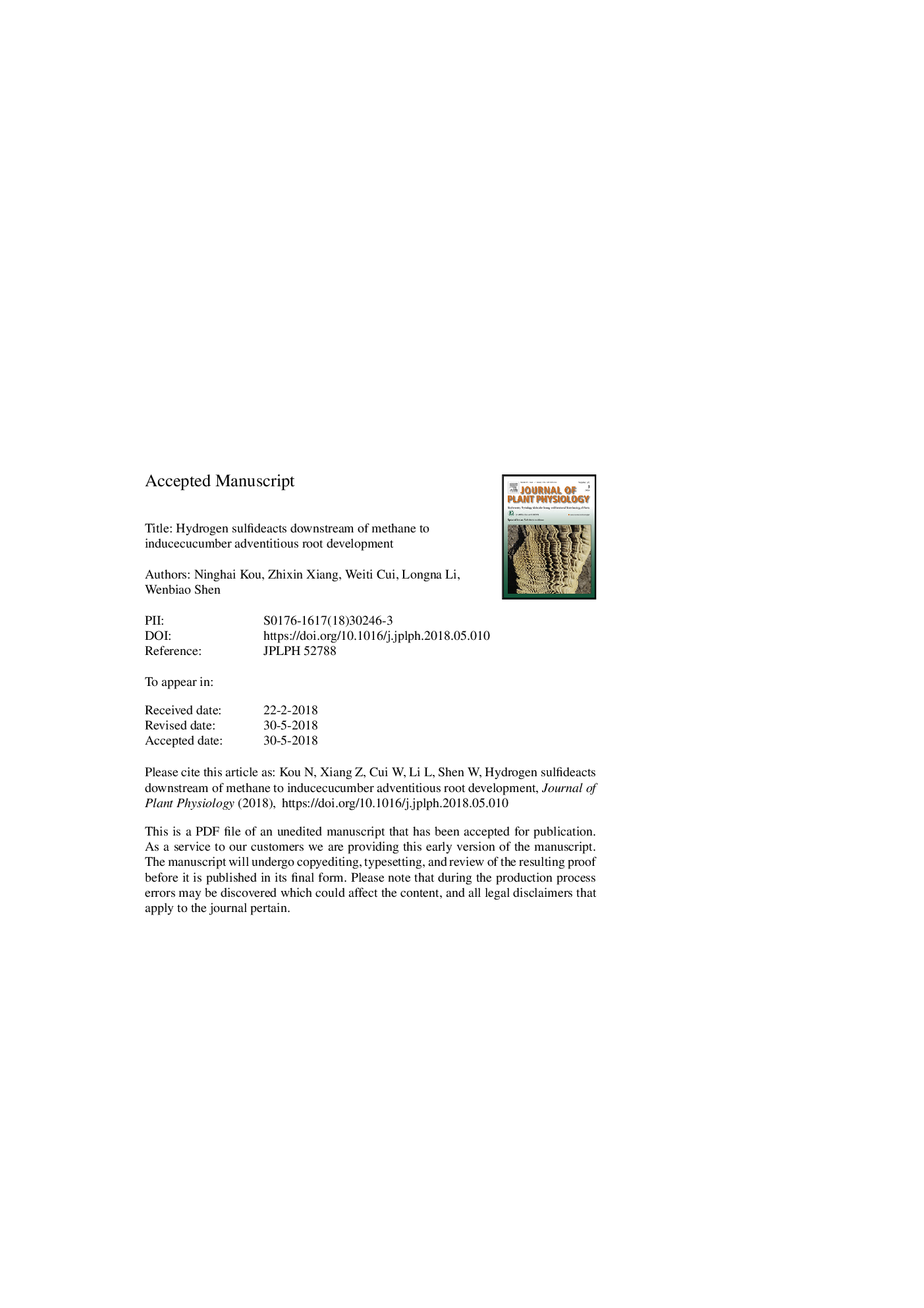| کد مقاله | کد نشریه | سال انتشار | مقاله انگلیسی | نسخه تمام متن |
|---|---|---|---|---|
| 8386701 | 1543851 | 2018 | 39 صفحه PDF | دانلود رایگان |
عنوان انگلیسی مقاله ISI
Hydrogen sulfide acts downstream of methane to induce cucumber adventitious root development
ترجمه فارسی عنوان
سولفید هیدروژن به دنبال پایین آمدن از متان برای ایجاد ریشه های سیراب کننده خیار است
دانلود مقاله + سفارش ترجمه
دانلود مقاله ISI انگلیسی
رایگان برای ایرانیان
کلمات کلیدی
موضوعات مرتبط
علوم زیستی و بیوفناوری
علوم کشاورزی و بیولوژیک
علوم زراعت و اصلاح نباتات
چکیده انگلیسی
Previous results have shown that hydrogen sulfide (H2S), mainly catalyzed by l-cysteine desulfhydrase (DES) in plants, triggers adventitious rooting. The objective of this study was to test whether H2S is involved in methane (CH4)-induced adventitious root development in cucumber explants. First, we observed that the activities of DES, endogenous H2S production, and thereafter adventitious root development were induced by CH4 and NaHS (an H2S donor). Some responses were sensitive to hypotaurine (HT; a scavenger of H2S), showing that endogenous H2S production and adventitious rooting were obviously blocked. The development of adventitious root primordia was also impaired. Further molecular evidence revealed that CH4-induced gene expression of CsDNAJ-1, CsCDPK1, CsCDPK5, CsCDC6 (a cell-division-related gene), CsAux22D-like, and CsAux22B-like (two auxin-signaling genes), several molecular markers responsible for adventitious rooting, were blocked by the co-treatment with HT. The occurrence of CH4-elicited S-sulfhydration during the above responses was also sensitive to the removal of endogenous H2S, suggesting the requirement of H2S. Taken together, our results reveal a vital role of endogenous H2S in CH4-triggered cucumber adventitious root development, and thus provide a comprehensive window into the complex signaling transduction pathway in CH4-mediated root organogenesis.
ناشر
Database: Elsevier - ScienceDirect (ساینس دایرکت)
Journal: Journal of Plant Physiology - Volume 228, September 2018, Pages 113-120
Journal: Journal of Plant Physiology - Volume 228, September 2018, Pages 113-120
نویسندگان
Ninghai Kou, Zhixin Xiang, Weiti Cui, Longna Li, Wenbiao Shen,
